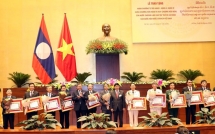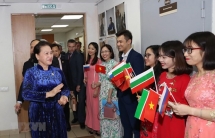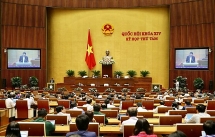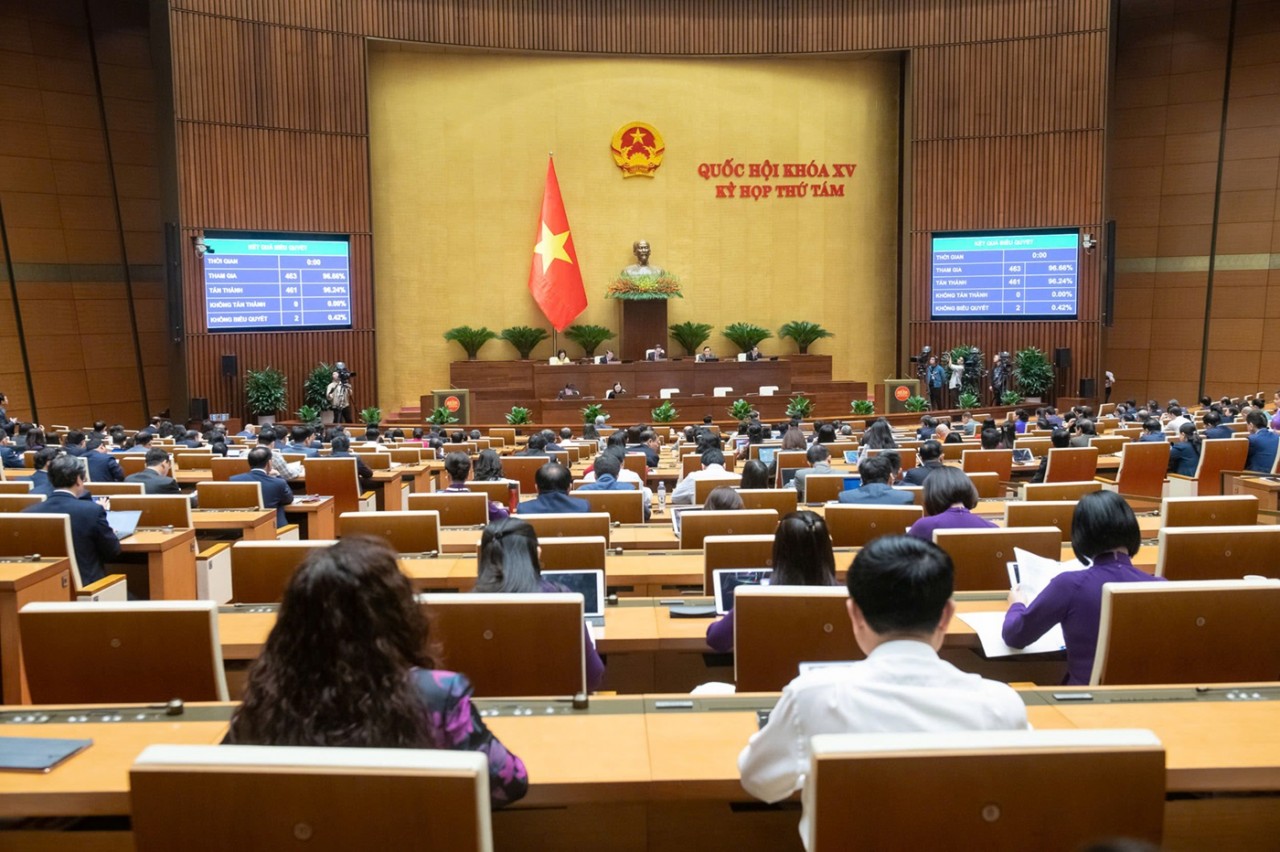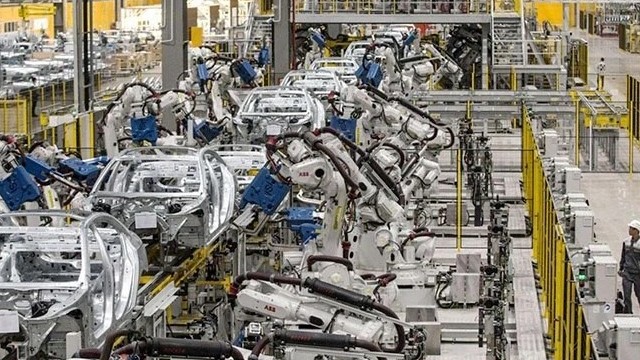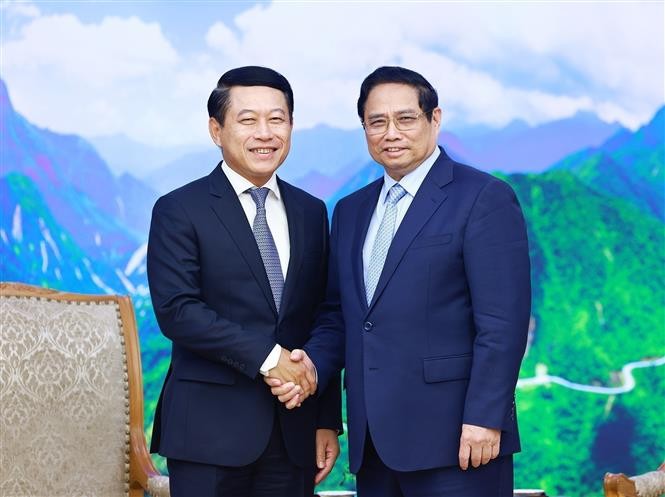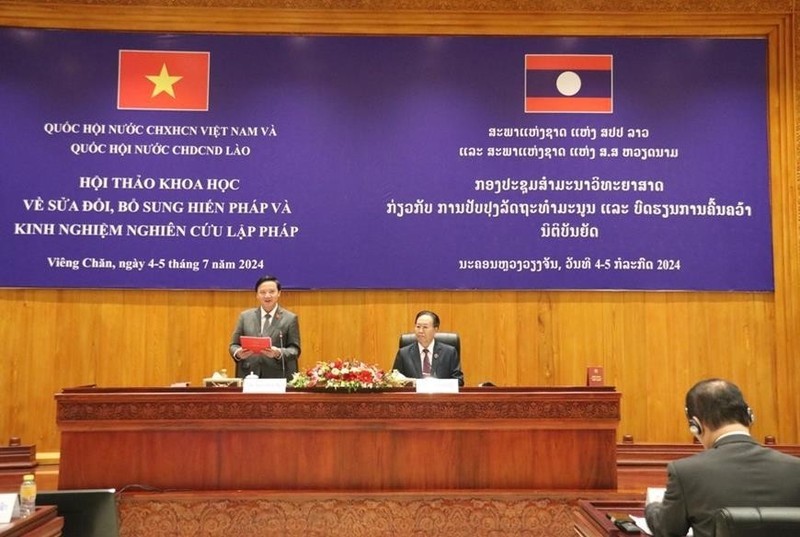Vietnam National Assembly: History, functions and components
| Laos honours Vietnam’s National Assembly organisations, individuals | |
| NA leader meets Vietnamese community in Tatarstan | |
| National Assembly adopts resolution on 2020 State budget allocation |
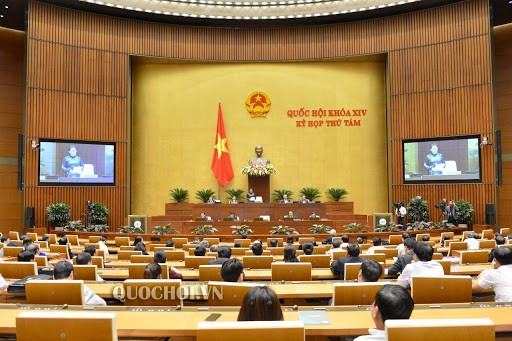 |
| The National Assembly Meeting |
Functions
The National Assembly decides the fundamental domestic and foreign policies, the socio-economic tasks, national defense and security issues, the major principles governing the State machinery, the social relations and activities of citizens. The National Assembly exercises the right to supreme supervision of all activities of the State.
The National Assembly are tasked to perform the constitutional, legislative and supervisory functions and make decisions on the fundamental policies on the internal and external affairs, on the economic and social, national defense and security tasks, the main principles of the State apparatus, on the social relations and the citizens’ activities.
Terms
The term of the National Assembly is five years with two sessions a year in its activities. If the Standing Committee of the National Assembly finds it necessary or as requested by the State President, the Prime Minister of by one third of the total deputies, the National Assembly shall convene its sudden session. The deputies of the National Assembly are the Vietnamese citizens with the age of 21 and older, with good quality, qualifications and abilities and are elected by the voters.
Components
Two councils of the National Assembly are: the Council of the National Defense-Security chaired by the State President; the Prime Minister is the Vice-Chairman and 4 members; the Council of Nationalities comprises a Chairman and 38 members.
| The Functional Committee of the National Assembly comprises the Law Committee; the Committee of Economy and Budget; the National Defense-Security Committee; the Committee of Culture, Education of Youth, Adolescents and Children; the Committee of Social Issues; the Committee of Science, Technology and Environment and the Committee of External Relations. |
The National Assembly has the highest authority to make Constitution and Laws. Legal documents promulgated by the National Assembly are the Constitution, codes, laws and resolutions. The National Assembly has three main functions: legislative, deciding the important issues of the country and carrying out the supreme supervision power of all activities of the State.
The legislative function
The National Assembly is the sole body empowered to adopt the Constitution and the laws. The National Assembly not only adopts and amends the Constitution and the law, but also decides on the legislative program.
According to the 1992 Constitution, the President of the Republic, the Standing Committee of the National Assembly, the Ethnic Council, the Committees of the National Assembly, the Government, the Supreme People's Court, the Supreme People's Procuracy, the Viet Nam Fatherland Front and its members, as well as the individual Deputies to the National Assembly have right to present bills to the National Assembly.
Before being presented to the National Assembly, bills are first examined and commented on by the Ethnic Council or the relevant Committee of the National Assembly. The bills are then sent to all Deputies to the National Assembly not later than 20 days before the opening date of the National Assembly session.
The function of deciding the important issues of the Nation
As the highest state authority, the National Assembly make decision on the socio-economic development plans of the country; on the national financial and monetary policies and on the estimates of the national revenue and expenditure plans. It also decides the State budget, approves the national revenue and expenditure balance of account, and levies, amends and abolishes taxes. The National Assembly elects the President of the Republic, the Chairman of the National Assembly and the Prime Minister. It approves all appointments of Ministers upon the recommendation of the Government.
The National Assembly decides issues of war and peace. It also has the power to declare an emergency situation and may take other special measures to ensure national defense and security. The National Assembly decides on amnesties and referenda. With respect to foreign affairs, the National Assembly decides on fundamental external policies. At the request of the President of the Republic, it ratifies or revokes those international treaties that Viet Nam has signed or adhered to.
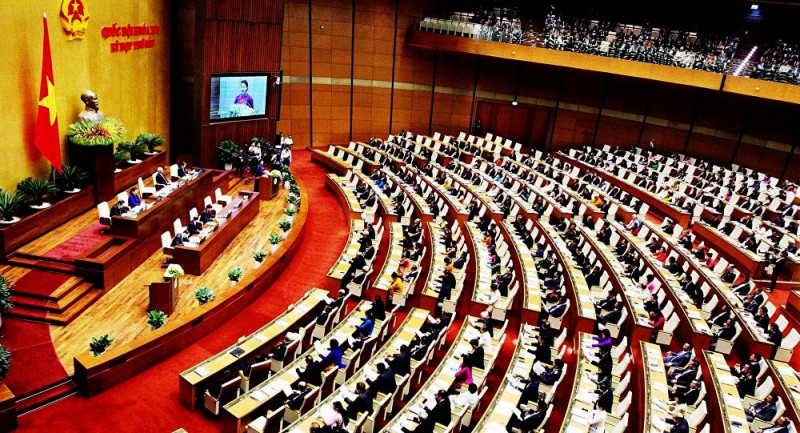 |
| The National Assembly |
The supervision function
The National Assembly exercises the supreme power of supervision over all activities of the State. This function is carried out through the activities of the National Assembly, the Standing Committee of the National Assembly, the Ethnic Council, the Committees of the National Assembly and individual deputies to the National Assembly. The National Assembly examines all working reports of the President of the Republic, the Standing Committee of the National Assembly, the Government, the Supreme People's Court and of the Supreme People's Procuracy.
The Standing Committee of the National Assembly supervises the implementation of the Constitution, the Laws, and the Resolutions of the National Assembly, as well as the Ordinances, and Resolutions of the Standing Committee of the National Assembly. It also supervises the activities of the Government, the Supreme People's Court, the Supreme People's Procuracy. It may suspend the effect of any legal document of the Government, the Supreme People's Court, and the Supreme People's Procuracy, which is not in conformity with the Constitution, the Laws or the Resolutions of the National Assembly.
If any violation of the law is discovered, the Ethnic Council and the Committees of the National Assembly are entitled to require the violating organization or individual to cease such violation. They may also recommend measures against the authorities or/and and may also report the matter to the Standing Committee. The results of the supervision, together with the recommendations of the Ethnic Council or the Committees, are reported to the Standing Committee of the National Assembly and the relevant agencies are notified.
The Chairman and Vice Chairmen of the National Assembly
| The Chairman and Vice Chairmen are elected by the National Assembly among NA deputies in the first session of every NA tenure. Vice Chairmen are the assistants to the Chairman as assigned by the latter. The Chairman and the Vice Chairmen of the National Assembly are the deputies elected by the National Assembly at the first session of every tenure of the National Assembly. The Vice Chairmen of the National Assembly are the assistants of the Chairman in accordance with the distribution of work of the Chairman. |
The Standing Committee of the National Assembly
The Standing Committee of the National Assembly is the permanent body of the National Assembly between the two sessions. The Standing Committee supervises the implementation of the Constitution, laws and resolutions approved by the National Assembly, ordinances and resolutions issued by the NA Standing Committee; and the performance of the Government, Supreme People’s Court, Supreme People’s Procuracy.
The 1992 Constitution stipulates that the Standing Committee of the National Assembly has twelve tasks and powers. Among them are the powers to announce, convene and chair the National Assembly sessions, to interpret the constitution, laws and ordinances, and to issue ordinances on those matters assigned by the National Assembly. The Standing Committee of the National Assembly also supervises and guides the activities of the People's Councils and directs, regulates and coordinates the activities of the Council of Ethnic Affairs and all Committees of the National Assembly.
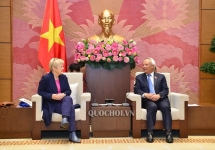 | NA Vice Chairman welcomes German parliamentarians Vice Chairman of the National Assembly Uong Chu Luu has thanked the German parliament for its support for the European Parliament’s ratification of free trade ... |
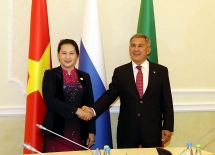 | Top legislator meets President of Russia’s Tatarstan Continuing her official visit to Russia, National Assembly Chairwoman Nguyen Thi Kim Ngan on December 9 met with President of the Republic of Tartastan, Russia, ... |
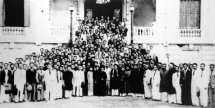 | Vietnamese National Assembly over time Since its establishment, the Vietnamese National Assembly has made significant contributions to the national liberation and unification, as well as the building of socialism and ... |
Recommended
 Viet's Home
Viet's Home
Vietnamese Architect Wins the Diversity in Architecture Award 2025
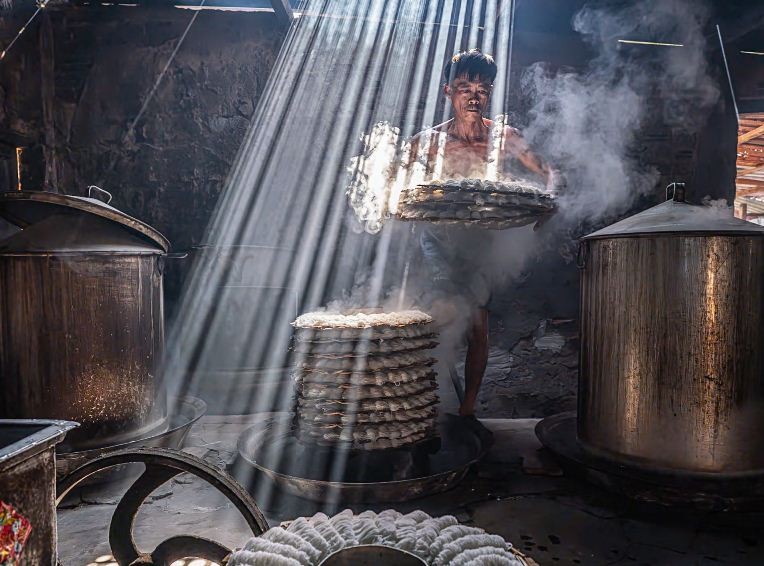 Viet's Home
Viet's Home
Vietnamese Photographer Triumph in Global Food Photography Contest
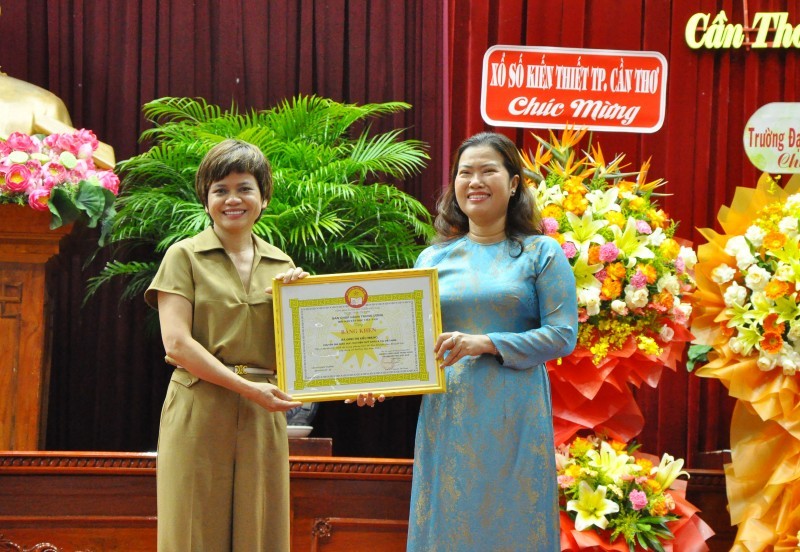 Viet's Home
Viet's Home
The Asia Foundation Awards 101 Scholarships to Can Tho Female Students
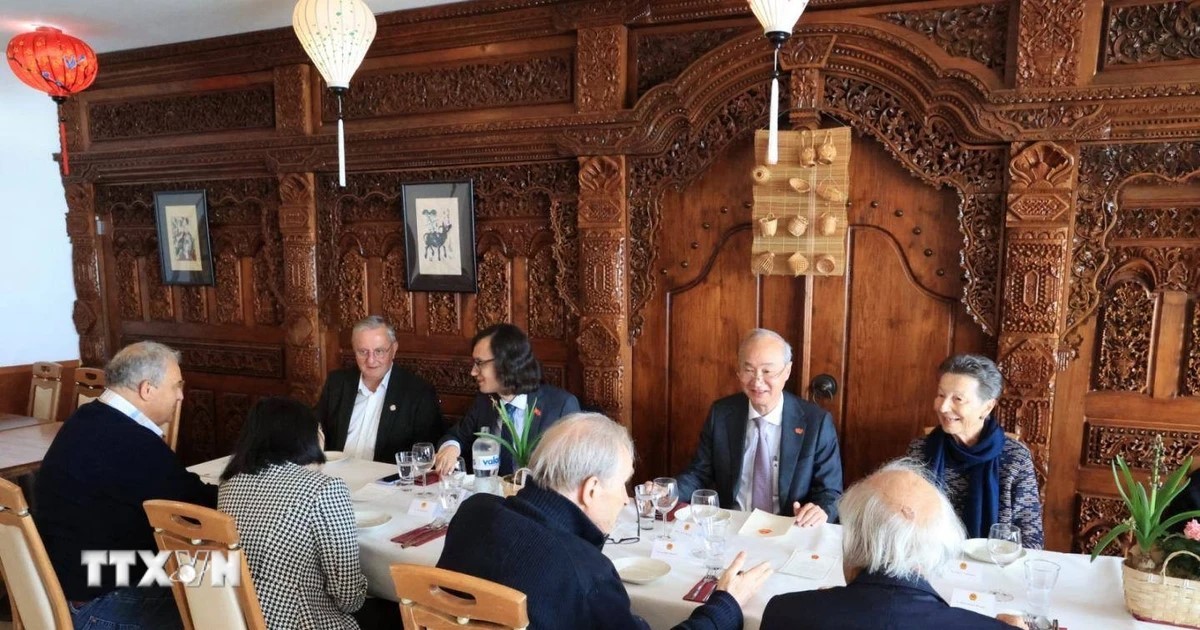 Viet's Home
Viet's Home
Ho Chi Minh And Deep Admiration in the Memories of International friends
Popular article
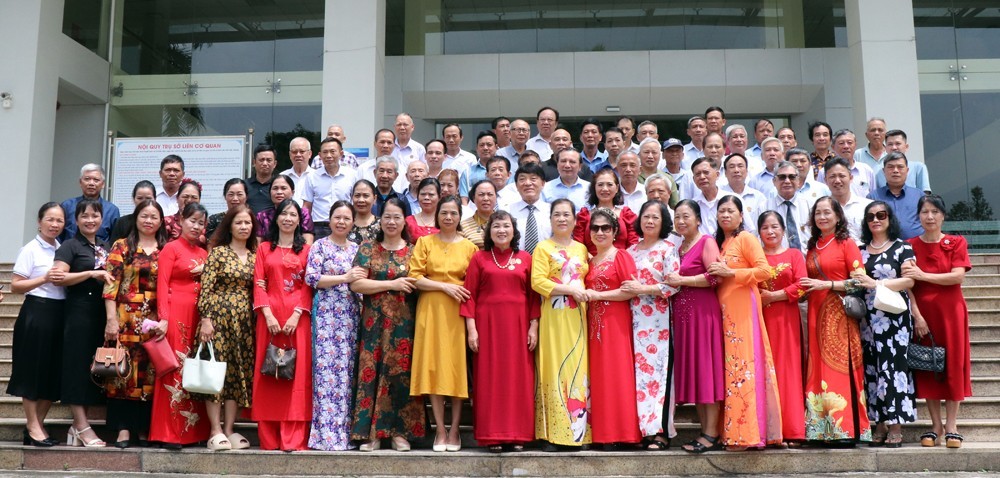 Viet's Home
Viet's Home
Meaningful People-to-people Diplomacy Activities in Bac Giang, Dong Nai, and Ho Chi Minh City
 Viet's Home
Viet's Home
Brand New Vietnamese Language Training Program Launches in Hanoi
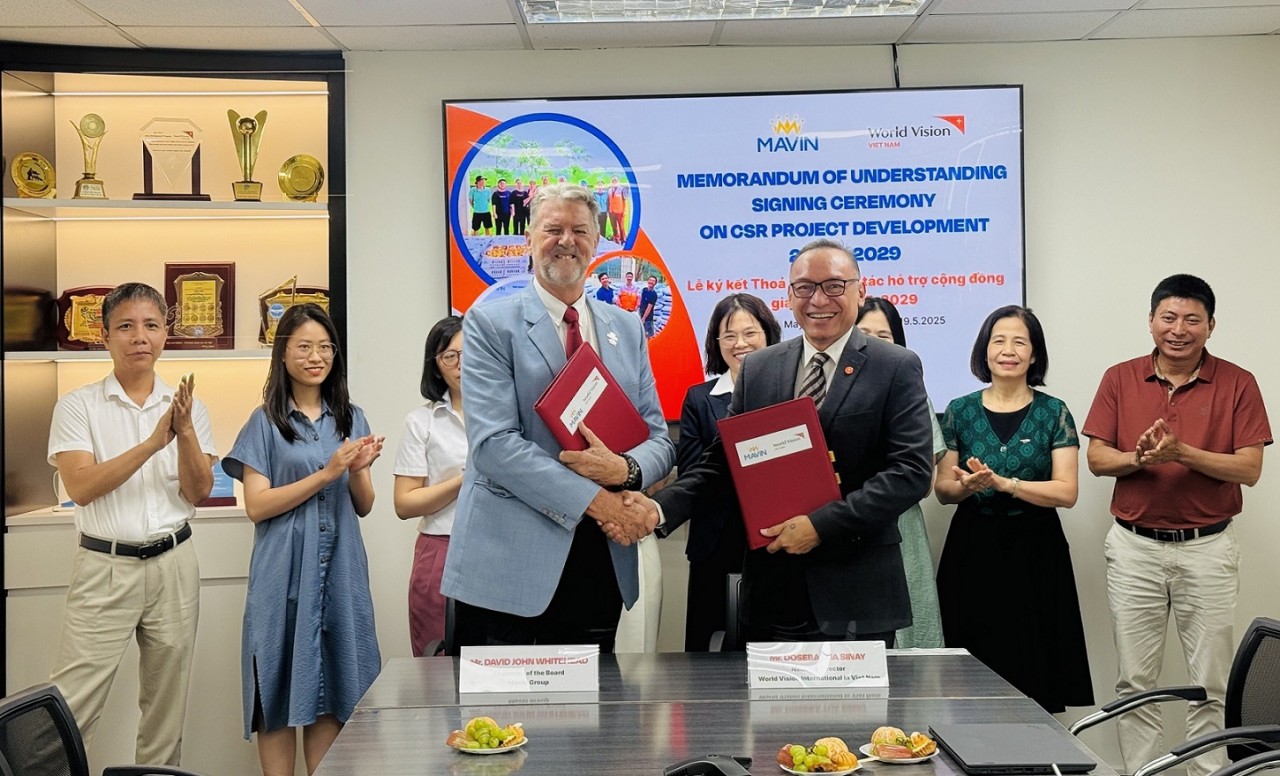 Viet's Home
Viet's Home
WVIV Supports Livelihoods and Improves Nutrition for Poor People in Thanh Hoa
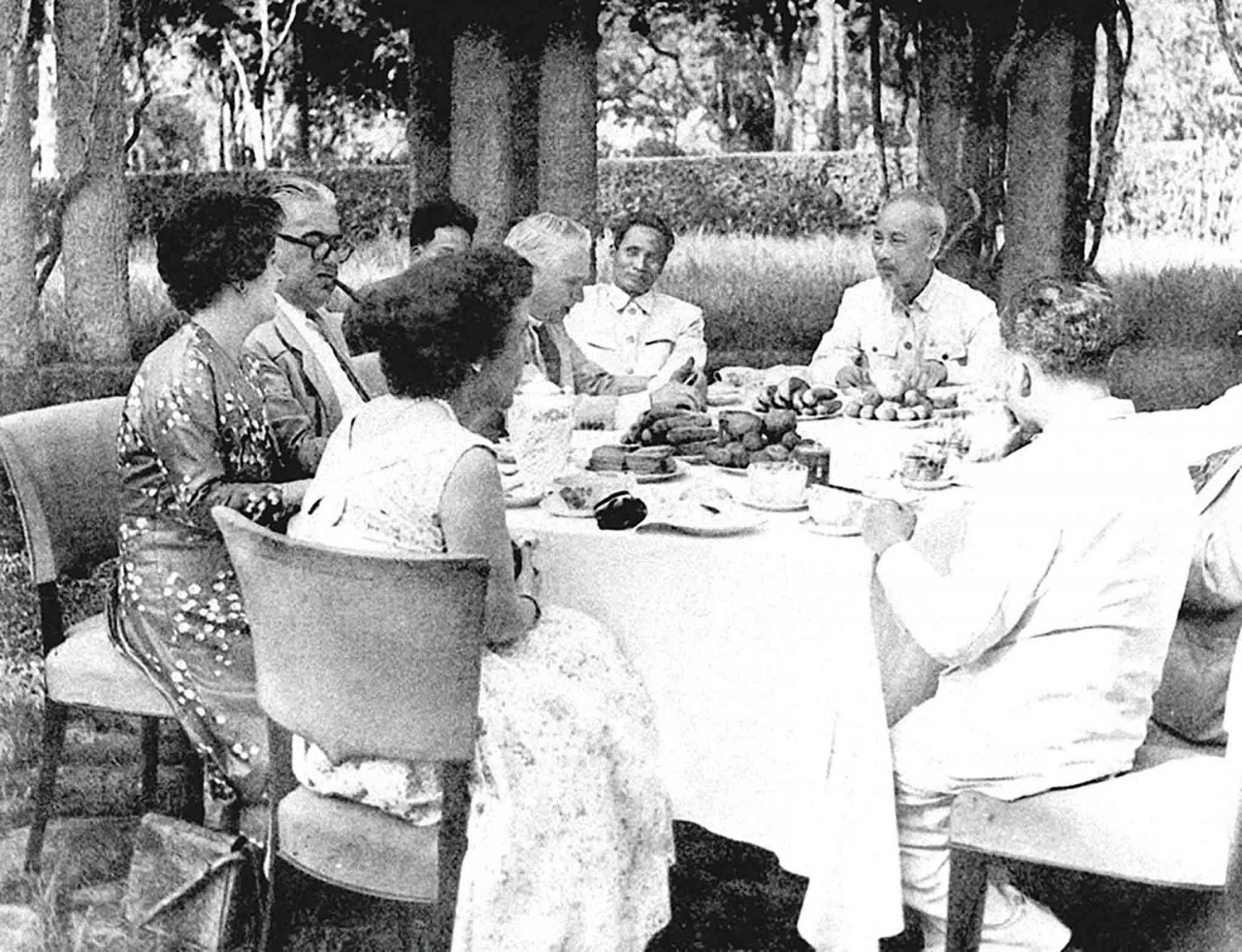 Viet's Home
Viet's Home

